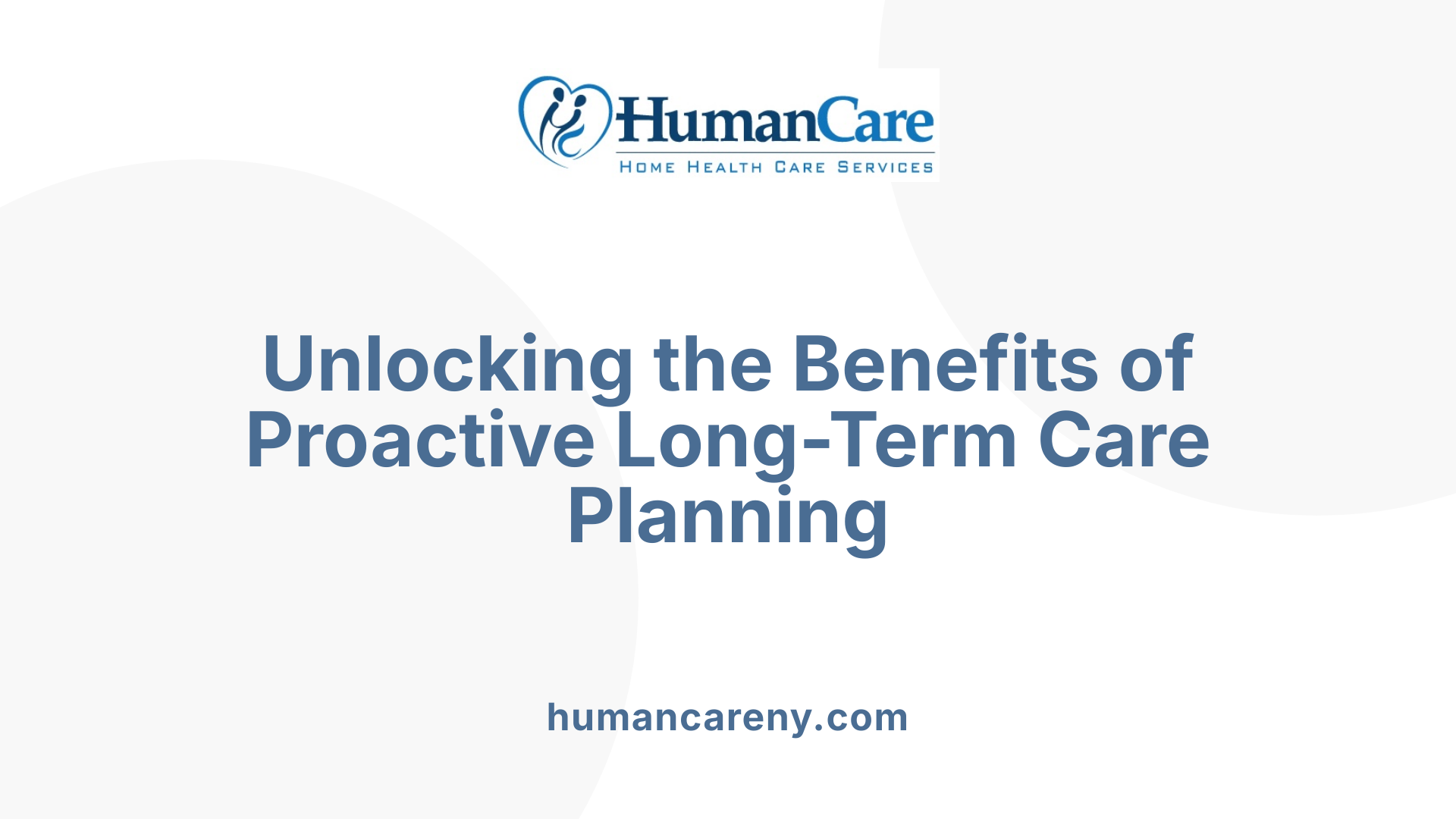How Geriatric Care Planning Supports Long-Term Well-Being
Enhancing Elderly Well-Being Through Strategic Geriatric Care

The Role of Geriatric Care Planning
As the population of older adults continues to grow, understanding how geriatric care planning supports long-term well-being is more important than ever. By proactively addressing healthcare, emotional needs, and long-term care planning, we can ensure a higher quality of life for seniors. This comprehensive approach involves healthcare engagement, mental wellness strategies, and financial and legal preparations, which not only enhance the lives of older adults but also ease their transition into later stages of life. This article explores how strategic geriatric care planning contributes to the sustained health, independence, and well-being of seniors.
The Importance of Geriatric Care Models

Why are geriatric care models important?
Geriatric care models play a pivotal role in addressing the unique healthcare needs of older adults, who tend to incur higher healthcare costs and utilization rates. These models are increasingly significant as the healthcare system moves towards value-based care that emphasizes improving the quality of service while managing expenses effectively.
They aim to enhance access to healthcare, ensuring that older patients receive the appropriate services tailored to their specific requirements. For instance, approaches such as patient-centered medical homes (PCMHs) focus on providing comprehensive care that encompasses not just physical health, but also mental and social well-being.
Value-based care approaches
The shift to value-based care is crucial in geriatric care models. This model incentivizes healthcare providers to deliver higher quality care rather than merely billing for services rendered. Research shows that focusing on health outcomes and patient satisfaction can lead to better care while also containing costs.
Some strategies include integrating multidisciplinary teams to manage chronic conditions, thus preventing unnecessary hospitalizations.
Significance of patient-centered medical homes
Patient-centered medical homes serve as a cornerstone in geriatric care, promoting coordinated care directed by a primary care physician. By emphasizing individualized care plans and continuous patient engagement, healthcare providers can address diverse patient needs effectively while improving overall health outcomes.
Healthcare resource allocation for geriatric needs
Effective resource allocation is essential in geriatric care to ensure that the complex needs of older adults are met. Innovative approaches and data-driven strategies can help identify high-need patients and streamline interventions, thus optimizing the use of available services.
In conclusion, successful geriatric care models not only elevate the quality of life for older adults but also make significant strides in moderating the rising healthcare costs associated with this population.
Promoting Elderly Well-Being

How can we promote the well-being of the elderly?
Promoting the well-being of the elderly involves a multi-faceted approach that prioritizes their choices and interests. Providing various activities that foster motivation, learning, and independence is essential. Care staff should facilitate access to an array of physical, social, leisure, and community activities tailored to the individual preferences of each resident.
Supporting personal identity enhances dignity and self-esteem. Staff can help elderly individuals express their unique experiences and preferences, acknowledging their life journeys. This recognition is strong motivation for active participation in their care and daily activities.
Mental health must also be a focus, as challenges like depression and loneliness are common in older adults. Staff should be trained to identify and address these issues, ensuring seniors have appropriate access to mental health support and resources. Vigilance around physical conditions, sensory impairments, and chronic health issues contributes significantly to maintaining both mental and physical well-being.
Additionally, fostering a sense of community among residents can be beneficial. Social engagement through group activities and supportive coaching can help prevent isolation and encourage meaningful interactions, enhancing their quality of life.
Benefits of Long-Term Care Planning

What are the benefits of long-term care planning?
Planning for long-term care presents numerous advantages that can greatly enhance the quality of life for individuals and their families. First and foremost, it enables better informed decision making. By understanding the variety of available services and their respective costs, families can make choices that align with their needs and preferences, steering clear of hasty, crisis-driven decisions.
Moreover, early planning encourages individuals to articulate their care preferences ahead of time. This foresight can lead to more personalized service that aligns with their desires, resulting in greater satisfaction and overall quality of life.
Why is financial planning important for senior care?
Financial planning for senior care is crucial to safeguard personal resources. Understanding the costs embodied in different types of care—from in-home support to nursing facilities—enables families to prepare adequately. By exploring funding options, such as long-term care insurance or government assistance programs like Medicare and Medicaid, individuals can protect their savings against potential long-term care expenses.
In summary, proactive long-term care planning supports a more smooth transition as care needs evolve, leading to improved management and better outcomes in later years. It’s about creating a plan that prioritizes both the individual's desires and the family's financial well-being, ensuring a dignified and independent life.
Comprehensive Aspects of Long-Term Care

What does long-term care include in taking care of older adults?
Long-term care encompasses a broad spectrum of services designed to assist older adults with their evolving needs. This support is essential for helping individuals manage daily living and maintaining their independence for as long as possible.
Daily Living Support Services
- Personal Care
- Tasks such as bathing, grooming, dressing, and eating are fundamental to ensuring dignity and self-esteem.
- Household Activities
- Support with cleaning, laundry, meal preparation, and grocery shopping helps maintain a comfortable living environment.
- Safety Measures
- Home modifications and assistance with mobility reduce the risk of accidents and injuries.
Medical and Recreational Enhancements
- Health Management
- Services like medication management, physical therapy, and nursing care ensure chronic conditions are managed effectively.
- Social Activities
- Programs that promote social engagement and recreation help prevent feelings of isolation, which is crucial for mental well-being.
Overall, long-term care aims to boost the physical, emotional, and social health of older adults, thereby enhancing their quality of life while fostering independence.
The Role of Geriatric Care Managers

Care plan development
Geriatric care managers are vital for developing personalized care plans that cater to the unique needs of older adults. They assess the individual’s health, preferences, and living situation to create a comprehensive blueprint that encompasses medical, social, and emotional aspects of care. This personalized approach is essential to maintain quality of life and address the complexities of aging.
Navigating care complexities
As healthcare systems can often be overwhelming, geriatric care managers help navigate various care options, from in-home services to assisted living facilities. They guide families through the maze of services and professionals available, ensuring that appropriate choices are made, which can significantly ease the burden at a time of uncertainty.
Resource identification
Additionally, geriatric care managers are instrumental in identifying community resources and services that promote independent living. They are familiar with financial aid options, such as Long-Term Care insurance and government programs like Medicaid, that can assist families in securing the necessary resources for care. Their expertise is crucial in ensuring sustainable and effective support for both seniors and their families, enabling a more informed and confident approach to aging.
Integrating Mental Wellness in Care Planning
Components of a Mental Wellness Plan
Creating a robust mental wellness plan for seniors encompasses several essential components. These include:
- Mental health exercises: Activities designed to stimulate cognitive function and emotional well-being, such as puzzles, memory games, and mindfulness practices.
- Physical health activities: Regular exercise routines that promote physical vitality, which is intrinsically linked to mental health.
- Social engagement: Encouraging participation in social gatherings, community events, or hobbies to foster connections and reduce feelings of isolation.
- Nutritional balance: A healthy diet that supports both physical and cognitive health, vital for sustaining energy levels and mental clarity.
- Stress management: Techniques such as meditation or deep-breathing exercises that help manage stress levels and maintain a sense of calm.
Impact on Seniors’ Daily Lives
Implementing a mental wellness plan significantly enhances the quality of life for seniors. It fosters emotional stability, enriches social interactions, and supports cognitive health. By engaging in purposeful activities, seniors experience increased joy and meaning in daily life, helping them retain their independence and dignity as they age. A well-rounded approach not only addresses immediate mental health but also prepares seniors for potential future challenges, creating a proactive framework for their overall well-being.
The Future of Geriatric Care
Strategic geriatric care planning is an indispensable element of enhancing the long-term well-being of older adults. By integrating robust models of care, proactive planning, and a focus on mental and emotional health, we can create environments that support the dignity, independence, and quality of life seniors deserve. As the demographic continues to grow, it is imperative to adopt comprehensive plans that address the full spectrum of needs for older adults, thus empowering them to thrive during their golden years with peace of mind.
References
- What Is Long-Term Care? | National Institute on Aging
- Aging in Place: Growing Older at Home
- A Guide to Long-Term Care Planning: Preparing for a Secure Future
- Long Term Care Planning - Eldercare Locator
- Providing access to long-term care for older people
- Long Term Care Planning: The Ultimate Senior's Success Guide
- Long-Term Services and Supports for Older Adults: A Position Paper ...
- Creating a Mental Wellness Plan for Long-Term Cognitive Health





























































































